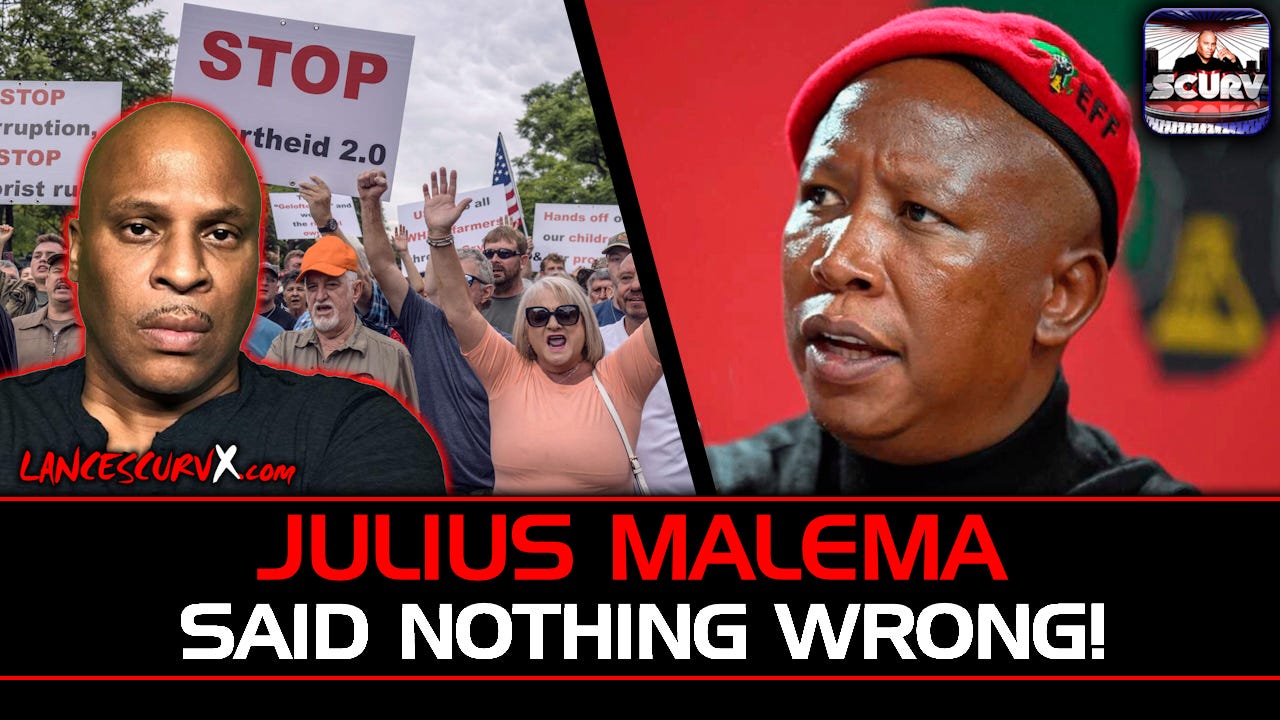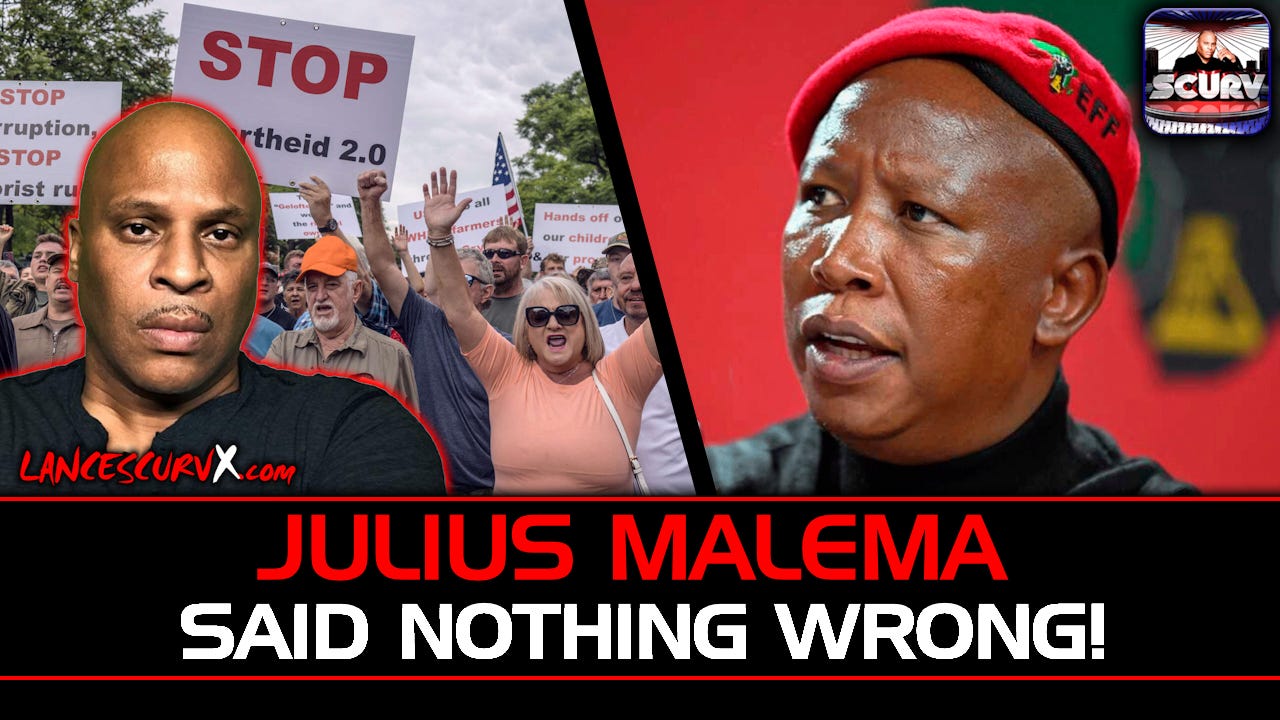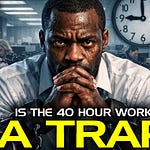The world often fears a voice that tells the truth. Especially when that voice comes from a Black man who stands up straight, looks you in the eye, and demands justice for his people. Julius Malema is that voice in South Africa. But instead of listening, the Western media has chosen to attack, distort, and demonize him. They tell the world he is a dangerous man, a racist, a hate-filled radical. But the truth is much deeper. Malema does not hate anyone. He simply refuses to love lies.
Born into the soil of South Africa, Julius Malema has witnessed firsthand what injustice looks like. He grew up in a land where the wealth of the nation sits in the hands of a few, while the rightful owners—the Black majority—are left to struggle on the edges of survival. And when he speaks about land reform, about ownership, about restoring what was stolen, he is not preaching hate. He is demanding fairness. He is doing what any leader should do: protect the dignity and future of his people.
The smear campaigns launched against him are not new. We have seen this playbook before. Any Black leader who calls for true independence and self-determination becomes an enemy in the eyes of those who benefit from our oppression. From Patrice Lumumba to Thomas Sankara, and now Julius Malema—the pattern is clear. The world calls them dangerous not because they are wrong, but because they are right. Because they tell the colonizer that their time is up.
The Afrikaners who now seek asylum in America, and who were welcomed by figures like Donald Trump, do so without acknowledging how they got their foothold in South Africa in the first place. Their forerunners arrived not as friends, not as equals, but as conquerors. They took the land, they drew the lines, and they built their wealth on the backs of African people. That is not opinion. That is history. And Julius Malema dares to speak it.
Malema reminds us that no other people can go into another land, take what they want, and declare themselves the owners. Africans cannot do that in Europe, or in America, or anywhere else. But somehow, the world looks the other way when it comes to Africa. Somehow, the rules do not apply when the victims are Black. And Malema, standing firm on the ground his ancestors walked, is telling the world: those days are over.
Africa is not up for grabs. It is not a buffet for outsiders to come and pick from while the children of the soil go hungry. What is happening in South Africa is not hatred—it is justice being reborn. It is long-overdue conversations finally being had. Julius Malema is not calling for violence. He is calling for balance. He is not chasing people out—he is reclaiming what belongs to his people.
The discomfort that others feel is not because Malema is unjust. It is because justice feels like punishment to those who have lived in luxury for too long. They want the world to see him as a threat so that they can hold on to what was never theirs to begin with. But we will not be fooled. Not again. We know what propaganda smells like, and we will not inhale it.
Across the continent, Africa is waking up. The lies of colonialism are cracking. The borders they drew are being questioned. The fake stories they sold us about who we are and what we deserve are being thrown away. Julius Malema is just one voice in a growing choir of truth. And whether the world listens or not, that truth is not going away.
It is not just South Africa’s struggle—it is Africa’s struggle. It is about reclaiming our resources, our identities, and our futures. It is about telling the world that we will no longer sit quietly while others steal from our table and call us beggars. We are not poor—we are robbed. We are not violent—we are provoked. And we are not defeated—we are rising.
So let these words stand as a beginning. A truth-telling moment. A line in the sand. Julius Malema is not the enemy. He is the mirror. And if the world does not like what it sees, then perhaps it’s time for the world to change—not him.
Julius Malema is a South African political leader known for his bold and fearless stance on issues of economic justice, land reform, and African self-determination. He was born on March 3, 1981, in the northern province of Limpopo, raised by a single mother under difficult economic conditions. From a young age, Malema was involved in political activism. He joined the African National Congress (ANC) Youth League at just nine years old and quickly rose through the ranks, demonstrating both leadership skills and a strong commitment to Black South African liberation. By 2008, he became the president of the ANC Youth League, where he gained national attention for his militant rhetoric and calls for radical change.
Malema’s political career took a new direction in 2013 when he founded the Economic Freedom Fighters (EFF), a leftist, pan-Africanist political party. The EFF was born out of frustration with the ANC’s slow pace on land reform, economic transformation, and addressing inequality in post-apartheid South Africa. Malema and the EFF openly challenge white monopoly capital, colonial structures, and global imperialism. They are widely recognized for their red berets and revolutionary tone, advocating for the nationalization of mines, banks, and other strategic sectors, as well as the return of land to its rightful African owners without compensation.
Despite being vilified by much of the mainstream media—especially in the West—Malema remains one of the most influential political voices in South Africa. He is known for speaking unapologetically about colonial theft, systemic racism, and the need for Africans to reclaim their dignity, wealth, and land. Many outside of South Africa misunderstand or purposely distort his message, painting him as anti-white or extremist. In truth, Malema does not advocate for hatred; he advocates for historical justice and accountability. He has stated repeatedly that he is not calling for revenge but for restoration.
What makes Julius Malema stand out is that he dares to say what others are afraid to say. He refuses to sanitize his words for comfort. His speeches are often direct, emotional, and rooted in the lived experiences of Black South Africans who continue to suffer under a system that never truly changed after apartheid. Whether one agrees with all of his methods or not, Malema has succeeded in reigniting the national conversation about land, justice, and the unfinished business of freedom in South Africa. He represents a generation that is no longer content with symbolic victories—they want real change.













